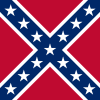

| Online: | |
| Visits: | |
| Stories: |

| Story Views | |
| Now: | |
| Last Hour: | |
| Last 24 Hours: | |
| Total: | |
Founding Greater Caribbean
Here’s another excerpt from Matthew Mulcahy’s Hubs of Empire: The Southeastern Lowcountry and British Caribbean:
“The English Men – and it was almost exclusively men at first – who ventured to the Caribbean in the early seventeenth century came in search of riches. As the historian Richard Dunn remarked, these early adventurers “did not attempt calypso-style Holy Experiments, nor did they build palm-fringed Cities on a Hill.” Neither religious persecution nor the desire to establish new, model societies motivated the majority of the colonists. That is not to say that religion played no role in the development of English colonies in the Caribbean, but there is little doubt that the search for individual wealth occupied a particularly prominent place in the minds of these men. As one early visitor stated, colonists “came here in order to be wealthy.
Colonists in Barbados and the Leeward Islands pinned their initial hopes for riches on tobacco. They gradually cleared the land, built up farms, grew provision crops along with tobacco for export, and used the profits to purchase more and more indentured servants. Tobacco provided solid, if unspectacular profits for several years, but prices dropped in the 1630s and colonists began to search for other crops that could generate revenue. Beginning in the 1640s, a few planters in Barbados learned the secrets of making sugar from the Dutch in Brazil, and within a few decades the island had become an economic juggernaut …”
I went ahead and bought the book on Michael Cushman’s recommendation.
This is a profound statement when you think about it. The English who settled the Caribbean “came here in order to be wealthy.” As Mulcahy explains, it started with the pirates like Francis Drake and Walter Raleigh who sailed the Caribbean in order to loot the Spanish Main and search for the riches of El Dorado. It progressed from there to establishing colonies on the fringes of Spanish America in order to grow tobacco. When that proved unprofitable due to competition with the superior tobacco crop grown in the Chesapeake, the Caribbean colonists switched to sugar.
As we saw in Pursuits of Happiness, New England was a great exception in British America. Most of the other British colonies were founded by mainstream Englishmen. By mainstream Englishmen, we mean the colonists were highly individualistic and materialistic like England was at the time. They were secular and commercially oriented. Eventually, the Anglican Church became the established church in all of the “Greater Caribbean” colonies of the Lower South and West Indies.
There was no grand idealistic purpose behind these colonies. They weren’t established to promote universal liberty and equality. Quite the opposite. The local Indians were enslaved, exterminated or pushed aside. African slaves were imported to work on sugar and rice plantations. The idea was to make as much money as possible so that one day you could return to England, join the country gentry and live in a mansion. They didn’t have any qualms about “racism” or “human rights.”
This was the culture the Barbadians brought to South Carolina. I’ve never believed in “American Exceptionalism.” I’ve always known that I didn’t care about being part of any “City on a Hill.” I don’t feel any sense of White guilt. All the moralizing about “racism” leaves me feeling flat. I knew intuitively that it wasn’t part of my culture long before I could explain why I felt that way. MacDonald King Aston explains that morally speaking we are an honor culture, not a guilt culture.
It is not in our nature to be paralyzed by guilt over racism, sexism, nativism, anti-Semitism, Islamophobia, xenophobia, homophobia, transphobia, etc., etc. I’m laughing just typing that out. Unlike New England, the Greater Caribbean wasn’t founded as a Covenant based society. We don’t have any history of thought policing our neighbors or yearning for “moral perfection.”
Source: http://www.occidentaldissent.com/2017/03/30/founding-greater-caribbean/


